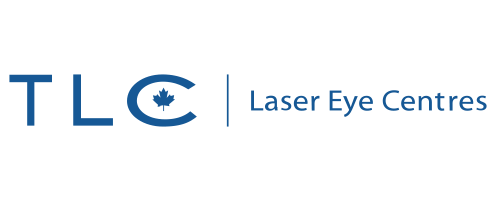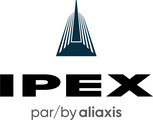Please refer to the How to Apply for a Job (for External Candidates) job aid for instructions on how to apply. If you are an active McGill employee (ie: currently in an active contract or position at McGill University), do not apply through this Career Site. Login to your McGill Workday account and apply to this posting using the Find Jobs report (type Find Jobs in the search bar). Description: Introduction to design; development of design judgement and communication skills in a series of exercises addressing light, scale, space, form and colour in the built environment; introduction to techniques of oral and graphic presentation, including model making, photography, sketching and architectural drawing. The course is based in the studio and includes lectures, seminars and field trips. Canadian Architectural Certification Board (CACB) Student Performance Criteria (SPC): A1, A2, A3 Topic and themes: Formal systems and architectural fictions. This studio explores how systems of geometric elements, developed through drawing and modeling, can inspire projections about architectural space and its occupation by various actors, humans or not. Through a sequence of design exercises that build on each other, students learn to define and develop a generative design method through transformation rules (A1). Translate between drawings and models (digital or physical) and creatively exploit gaps in moving between formats and media (A3). Develop design skills that negotiate relations between a geometric system and contextual forces (A2). Resolve architectural form with respect to materials and construction and begin approaching architectural details. Engage narrative and worldbuilding as productive ways of thinking about architecture’s contexts and inhabitants. Coordination: Please note that to better coordinate and manage student workload, instructors will be expected to work closely with colleagues and administration ahead of the semester to confirm scope, schedule, and assignments. Deadlines and tests will be finalized with the larger team and following conversations regarding resources and technical support. Studio coordinator: Prof. Theodora Vardouli. Please note: This studio will be team taught which means that multiple instructors will be assigned to teach this course. Instructors may work with multiple different groups of students throughout the term. All candidates will work closely with the Director as well as the Studio Coordinator to ensure that their course material meets the University Calendar regulations, the pedagogical objectives of the School and the specific Canadian Architectural Certification Board Student Performance Criteria (CACB – SPC) for their specific course. Description : Introduction au design ; développement du jugement en matière de conception et des compétences en communication dans une série d'exercices traitant de la lumière, de l'échelle, de l'espace, de la forme et de la couleur dans l'environnement bâti ; introduction aux techniques de présentation orale et graphique, notamment le modélisme, la photographie, le croquis et le dessin architectural. Le cours se déroule en studio et comprend des conférences, des séminaires et des sorties sur le terrain. Critères de performance des étudiants (SPC) du Conseil canadien de certification en architecture (CACB) : A1, A2, A3 Thème et thématiques : Systèmes formels et fictions architecturales. Ce studio explore comment des systèmes d'éléments géométriques, développés à travers le dessin et la modélisation, peuvent inspirer des projections sur l'espace architectural et son occupation par divers acteurs, humains ou non. A travers une séquence d'exercices de conception qui s'appuient les uns sur les autres, les étudiants apprennent à définir et développer une méthode de conception générative à travers des règles de transformation (A1). Traduire entre dessins et modèles (numériques ou physiques) et exploiter de manière créative les écarts dans le déplacement entre les formats et les supports (A3). Développer des compétences de conception qui négocient les relations entre un système géométrique et des forces contextuelles (A2). Résoudre la forme architecturale en ce qui concerne les matériaux et la construction et commencer à aborder les détails architecturaux. Engager le récit et la construction du monde comme moyens productifs de penser les contextes et les habitants de l’architecture. Coordination : veuillez noter que pour mieux coordonner et gérer la charge de travail des étudiants, les instructeurs devront travailler en étroite collaboration avec leurs collègues et l'administration avant le semestre pour confirmer la portée, le calendrier et les missions. Les délais et les tests seront finalisés avec l’ensemble de l’équipe et suite aux conversations concernant les ressources et le support technique. Coordinatrice du studio : Prof. Theodora Vardouli. Veuillez noter : Ce cours sera enseigné en équipe, ce qui signifie que plusieurs enseignants seront affectés à son enseignement. Les enseignants pourront travailler avec différents groupes d'étudiants tout au long du trimestre. Tous les candidats travailleront en étroite collaboration avec le directeur et le coordonnateur du cours afin de s'assurer que leur matériel de cours respecte les règlements du calendrier universitaire, les objectifs pédagogiques de l'École et les critères de performance des étudiants du Conseil canadien de certification en architecture (CCCA – CCE) propres à leur cours. Teaching Qualification Requirements: Appropriate technical, digital and/or critical, theoretical expertise required for the course; active in the profession. Professional practice and/or post-secondary teaching experience in architecture. M.Arch. or equivalent (first professional degree). Appointment is August 25 to December 31, 2025. ARCH 201 / Communication, Behaviour & Architecture (U1 studio). 6 credits. Salary $14,000. Une expertise technique, numérique et/ou critique théorique appropriée est requise pour le cours ; être actif dans la profession. Expérience de pratique professionnelle et/ou d'enseignement postsecondaire en architecture. Maîtrise en architecture ou équivalent (premier diplôme professionnel). Le poste est à pourvoir du 25 août au 31 décembre 2025. ARCH 201 / Communication, comportement et architecture (atelier U1). 6 crédits. Salaire : 14 000 $. Before applying, please note that to work at McGill University, you must be both authorized to work in Canada and willing to work in the province of Quebec at the campus where the position is based / located. McGill University is an English-language university where most teaching and research activities are conducted in the English language, thereby requiring English communication both verbally and in writing. Hiring Unit: Architecture Course Title: Communication, Behaviour & Architecture (U1 studio) Subject Code: ARCH 201 Location: Macdonald-Harrington Schedule: TBA Deadline to Apply: 2025-06-15 McGill University hires on the basis of merit and is strongly committed to equity and diversity within its community. We welcome applications from racialized persons/visible minorities, women, Indigenous persons, persons with disabilities, ethnic minorities, and persons of minority sexual orientations and gender identities, as well as from all qualified candidates with the skills and knowledge to productively engage with diverse communities. McGill implements an employment equity program and encourages members of designated groups to self-identify. Persons with disabilities who anticipate needing accommodations for any part of the application process may contact, in confidence, accessibilityrequest.hr@mcgill.ca. Located in one of the world’s great multicultural and multilingual cities, McGill University is internationally recognized for its excellence as a leading institution of higher education and research. For nearly 200 years, through the work of dedicated people, McGill has been breaking ground in diverse fields and contributing solutions to some of the world’s most significant issues. McGillians are proud to be part of a community that is both global and local, inspired by challenge and committed to shaping a better future. McGill received a Platinum STARS rating in sustainability, is among Canada’s greenest employers, and is a top Montreal Employer. Grandescunt Aucta Labore. By work, all things increase and grow. Find a sense of purpose. Develop your future. Join us today.



















